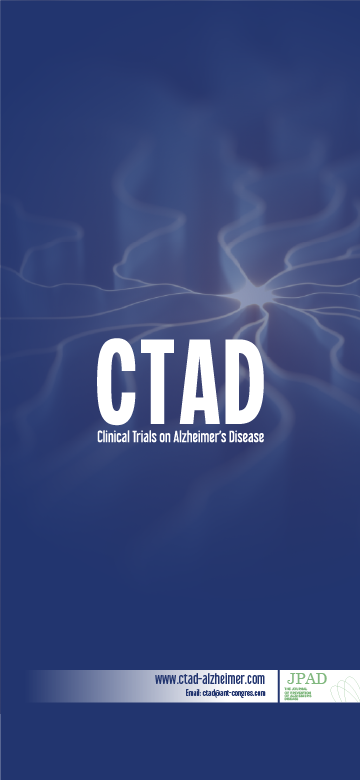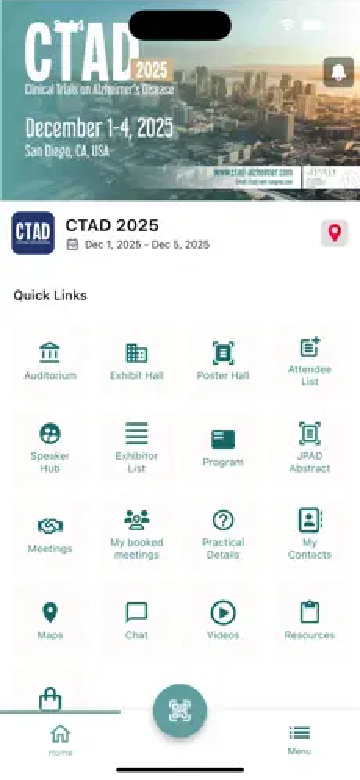Early Career Investigator Showcase Sessions
Flash Presentation During Coffee Breaks
Category 1 – Translational Therapeutics and Clinical Innovation
- Michael Leuchter (UCLA) – Broad Repetitive Transcranial Magnetic Stimulation (rTMS) of the Precuneus in Alzheimer’s Disease – Poster PEC008
Exploring large-coil rTMS targeting the precuneus to improve brain network function and memory in Alzheimer’s disease through a two-stage feasibility trial. - Emily Clark (University of Rochester) – Effects of Escitalopram on Neuropsychiatric Symptoms in Alzheimer’s Disease: S-CitAD Secondary Analysis – Poster PEC002
Analyzing escitalopram’s effect on mood and caregiver distress, suggesting potential antidepressant and behavioral benefits in Alzheimer’s care. - Melissa Wong (University of Toronto / Sunnybrook Research Institute) – Cerebral Blood Flow Ratio of the Default Mode Network to the Central Executive Network as a Predictor of Executive Function Following N-acetylcysteine Supplementation in Vascular Mild Cognitive Impairment – Poster P162
Examining whether cerebral blood flow ratios can predict treatment response to N-acetylcysteine in vascular MCI, highlighting personalized neurovascular biomarkers for intervention response.
Category 2 – Biomarkers and Mechanisms of Frailty and Cognitive Decline
- Davide Angioni (IHU HealthAge, Toulouse) – Plasma p-tau181 Levels and Cognitive & Physical Decline in Frail Older Adults (CogFrail Study) – Poster PEC001
Linking elevated plasma p-tau181 to both cognitive and physical decline, identifying a shared biological pathway for frailty and neurodegeneration. - Irina Skylar-Scott (Stanford University) – Proteomic Signatures of Lifestyle Activities and Cognitive Reserve – Poster PEC 003
Identifying plasma and CSF proteins associated with physical and cognitive activity, suggesting molecular pathways underlying resilience and cognitive reserve. - Lara Herriott (University of Oxford / AC Immune SA) – Modeling Brain Exposure and Efficacy of Next-Generation Brainshuttle Antibodies – Poster P393
Developing a quantitative systems pharmacology model to predict brain exposure and efficacy of receptor-mediated transcytosis antibodies such as trontinemab, offering insights into amyloid clearance mechanisms.
Category 3: Digital Health and New Tools for Early Detection
- Karra D. Harrington (Cogstate Ltd) – Feasibility and Accuracy of the LILA App for Community Cognitive Screening – Poster PEC006
Demonstrating the feasibility of a fully remote, AI-based verbal learning test for large-scale cognitive screening via smartphone. - Giovanna Pilonieta (University of Alabama at Birmingham) – MRI Utilization for ARIA Response in Lecanemab-treated Patients – Poster PEC005
Investigating MRI monitoring practices in amyloid therapy, highlighting the clinical and economic implications of ARIA management. - Marina Ritchie (ATRI, University of Southern California – San Diego) – Characterizing Enrollment Patterns in a Preclinical Alzheimer’s Disease Trial – Poster P006
Analyzing enrollment dynamics and demographic factors influencing participation in a preclinical Alzheimer’s disease trial, providing insights to optimize recruitment strategies and improve trial diversity.
Category 4: Non-Pharmacological and Lifestyle Interventions
- Bon D. Ku (Catholic Kwandong University – South Korea) – Therapeutic Agriculture for Cognitive and Emotional Well-being – Poster P344
Evaluating gardening-based interventions as a novel, low-cost therapy to improve mood and executive function in older adults and dementia patients - Inga Antonsdottir (Johns Hopkins University – United States) – Group Cognitive Behavioral Therapy for Insomnia (CBTi) in Dementia Dyads – Poster PEC004
Testing the feasibility of group CBTi tailored for persons with early Alzheimer’s and their care partners, aiming to enhance sleep and reduce frailty.






